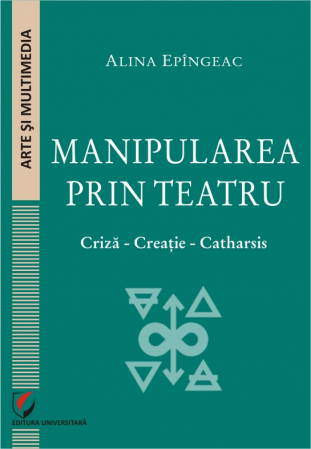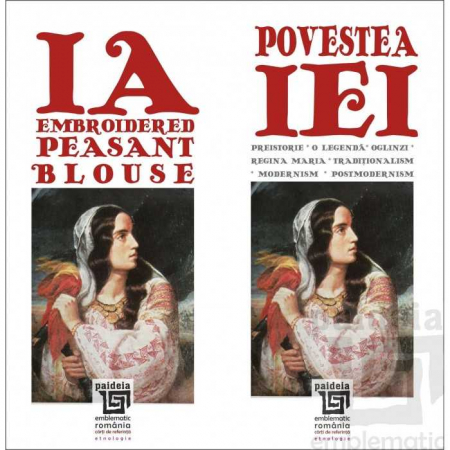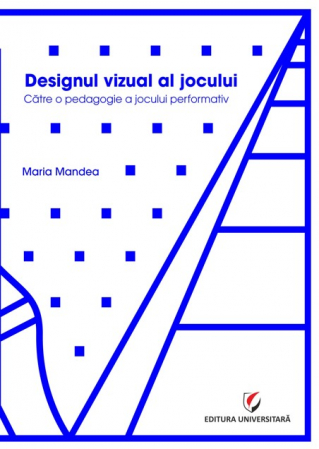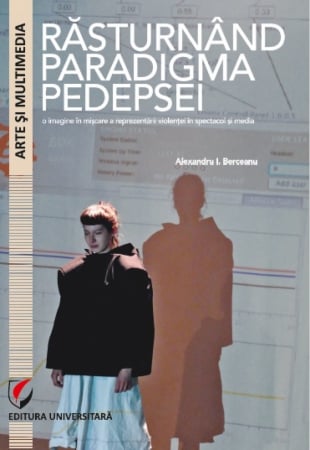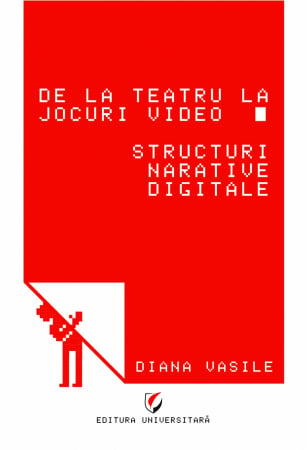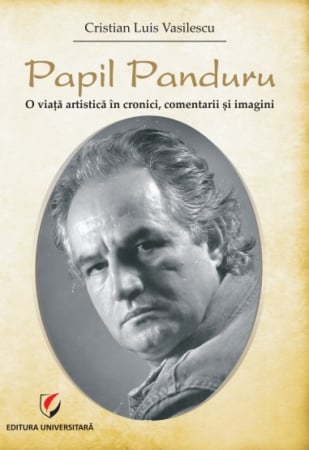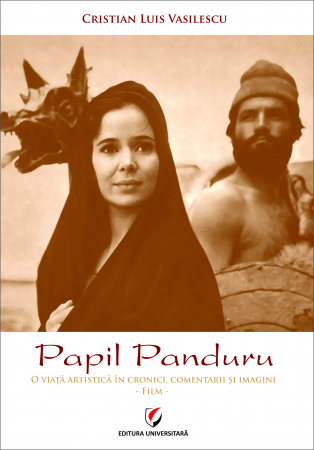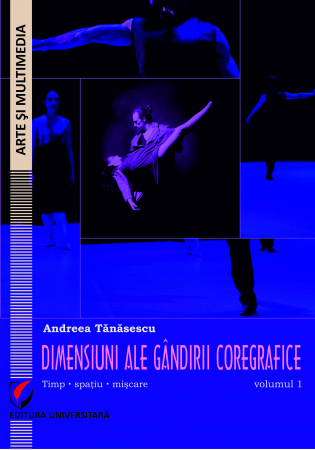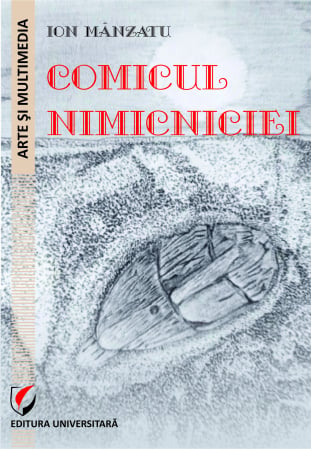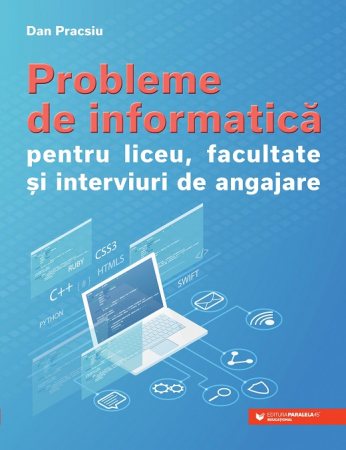6359.png) Music on the radio. Profile Playlist Manager in the context of transition from traditional to digital radio
Music on the radio. Profile Playlist Manager in the context of transition from traditional to digital radio
6359.png)
ISBN: 978-973-749-965-3
Publisher year: 2010
Edition: I
Pages: 97
Publisher: Editura Universitară
Author: Deliu Cătălin, Ana Maria Munteanu
- Description
- Download (1)
- Content
- Authors
- Reviews (0)
Playlist Manager is a professional field operator considered ambiguous and uncertain status, seriously threatened by the transition from analog radio (classic) to radio online. Relying on intuition, professional relations, a certain kind of sensibility gives him a radio musical identity and a certain quality and noise environment that extends the time range of information and interaction, or, where appropriate, is the environment in which various actions recorded daily. From an economic perspective - that of cultural industries with high profits and global markets - playlist manager is an intermediary in the marketing chain which includes stars, studios and production houses, event organizers, producers of sound technology, various vendors, industry is in turn influenced by many factors, first of regulation / deregulation, the laws of intellectual property, sponsorship, taxation, market classification of media, communication strategies and know-how, local culture of entrepreneurship , periods of growth or economic crisis, etc. Paradoxically, the music on the radio was not articulated a field study to answer this complex. With technological progress, radio evolution is influenced favorably by redesigning everyday culture, the extent of individual and family consumption, the diversification practices of reception while listening daily car trips to relax and socialize, a trend which continues as a result of expansion functions in mobile phones. As a means of communication was addressed mainly scientific in terms of radio journalism. But professionals say that this is an incomplete approach (Bakenhus, 2004). Radio is a two-dimensional channel (images acoustic music / voice and information), found in professional practice aspect of attractiveness based on supply music channels and, more generally, the quality of sound and musical interventions. Music radio is a structure of programs (radio format, radio programming format), a space defined by a set of positions more or less standardized by categories (labels), genres and styles from which functional correspondence is achieved between musical content - songs sound intervention (jingles), pictures, curtains musical intentions of producers - on the one hand, and preferences and taste receptors, which are obtained by forms of interaction and dialogue (animation, etc. by request.) So, a "mechanism" that tertiary or multiply more rapidly rotates as a propeller. This suggests inadequacy of linear models music programming operation / programming of conveying useful information. Music is broadcast content but also a channel for expression / emotions and feelings identification of the valuation which has two paths necontradictorii listening: the singularization (audit accompanying other activities, eg. Bicyclist who listen to music while riding) and emotional synchronization (creating atmosphere - the family, in various public contexts - listening to live concerts, etc..).
Once television replaced radio theater (radiodrama, audiodrama) became the dominant music formats radiodrama although still remains a kind of public radio broadcast (AMMunteanu in Chesnoiu M., ed. 2007, p.148). The choice of music is far from a routine operation. The emphasis is on qualitative variables and requires a double articulation: the culture industry standards (prototypical categories of music consumption combined with strict classification of music according to certain characteristics) and, to some extent, with the audience feedback. In other words is more than a profile of individual taste, personality and creativity, as attributes of self-publishing, as a manager Playist increasingly promoter strategies and recipes. Standards and interference of language and thinking every day reduces the distance between commercial and public radio and marketing strategies and deepens the operating speed, the difference between current flow and system cycle time (several centuries of culture !...) institutional and modern to traditional, symbolically set in rural communities temporality. Effects of prototypical reconfiguration of cultural universe based on product offerings and advertising - reduce the margin of choice in what is produced and broadcast in the industrial system now, forgetting dusting over history and creative era and, especially, are increasingly abandoning otherness search which enables high average size, and testing its own direct relationship, natural music in studio live performance theater or concert hall. Categories such as AC, AOR, Country or Oldies still reflects this authenticity amid conquered old musical styles, and they contain dilute concentrations of temporal distance "intuitions" and disidenţele DJs. Music radio is a form of culture, not only act but built entirely routine extension - in ways and means as simple or sophisticated - freedom of thought and expression assumed for Djs in the 70s, part of the cultural heritage of the century century, a legacy at risk to become anonymous. Some of us remember the show "Metronome" by Cornel Chiriac at Radio Free Europe. Success enjoyed this format and premature disappearance producer (he was assassinated on March 4, 1975) have turned into a myth.
"Radio Free Europe broadcasts Cornel Chiriac resumed from July 10, 1967 at Radio Romania, the most popular music show since. In collaboration with Geo Limbăşanu, this audience to-date information in the field of gender pop, rock or jazz. Were broadcast songs of bands or performers like the Beatles, Cream, Jimi Hendrix, Bob Dylan and Joan Baez. Sometimes it happens that certain albums to be presented to the public only two or three days of their occurrence in the United States. Shortly after the invasion of Czechoslovakia (21 August 1968) released a ballad on the post of Mircea Florian (in which the story of how five small and one larger wolf attacked a sheep farm), and later the song "Back in the USSR" the Beatles. Following the issue "Metronome" was abolished in 1969. "
Cornel Chiriac's professional profile could be revisited necessary undertaking today in a time of crisis of values. A former journalist, producer of radio, bands producer, publicist and jazz drummer. In the case of freedom of contract is under way with him and with fans having several clauses. Signs of this freedom responsible (to the value of music) can be found in various circumstances before and after 1989 the public radio and TV shows of Paul Grigoriu, creator of a morning music format and information suggesting insurgents, an area of freedom in between - between folds bureaucracy, reflecting the current intersection of information with quality music, the ability to record and evaluate the relevant public reactions without cheating in interactional game based on trust, rare skills - and in the process of thinning - originating in free speech culture in rites of interaction "on-air" in concerts and festivals which illustrates the need to argue in favor of music causes moral, intellectual, social. At the age of 60 years - Academic Quarter issue of November 4, 2009 broadcast of Radio Romania - former director of public radio, emblematic character of the process of institutional change says:
"Radio is everything! In radio I was family, I met people very important radio and radio we learned that you have to measure with tape before you speak ... The press is a power, but we are not aware of it, we know we uphold. We are tempted to make it a personal glory. The moment that press freedom will be understood as a concept and not as a gift from somewhere, everyone will know that the press is indeed power. "
Skills and competencies in a variable extent interfere with the opportunities offered by the industry - after the fall of communism private sector development and free market myth was embraced as authentic forms of media freedom in the mission and responsibilities stipulated in the communication media - on which licenses were granted - the subsequent beat profit orientation and alignment in a number of factors specific to post-communist period - the liberalization of media markets, import of technology, the emergence of trusts, local channels capitalization, capital nature being so professional, aiming ideologizing by support by the BBC, RFI, DW editorial staff training in projects and programs of UNDP, Project Liberty - Netherlands, Soros Foundation, USAID, the Foundation "Ion Ratiu" etc. and by manifesting in the field of possible various initiatives, local entrepreneurs are deprived of resources, technical expertise and editorial development scenarios and models, etc. Oscillation between value and non-value must be perceived as a dynamic force mobilized by various agents and institutions in several ways, reflecting the double pressure of interference to public openness and compliance and regrouping purely commercial influences due to liberalization and flow. Andrea Semprini design movement endless flow of images, contents, products, identities in an international mediasferă symbolic networks. Creation of local market media gave priority to purchase equipment, capitalization, emergency organization, etc. when they are creating the conditions for maintaining and developing the productive flows initially vulnerable and unstable for commercial broadcasting. Area commercial radio is modeled flow positive concept initially enunciated by Mihaly Csikszentmihalyi (1991): "The condition in which the individual becomes a channel for achieving personal dreams and desires by connecting the flow and concentration of specific actions as" workflow ". Wlhelm Carstens noted that "The autotelic experience happiness through productive action differs largely skeptical of social analysis but shows similar issues to the extent that the state recognizes a power flow and control and importance of this involvement" (Wilhelm Carstens, 2008) .
In music connected to the media industry emergence of the crisis and post-revolutionary professions delegitimează old routines and gradually configures a new profile, that of the commercial radio playlist manager, resulting in contraction of old profiles and specializations, depending on individual abilities and skills to respond quickly to emerging private job requirements and develop after 1990, Drawing a good times and a need for alternatives to state radio, until then a propaganda tool and cultural pole whose influence has lost ground to low-cost entertainment and products . The same instrument - playlist - with less data musical professionalism, fewer questions, technical and operational powers is equal to the older professions subordinated positions in the public sector - the musical director, illustrator music, sound technician and editor of music. From each of them something, recreating professional profile by the laws of speed, quantity, simplicity, efficiency and urgency, reactive and proactive states in direct contact with audiences, giving them the expression of profound crisis of identity and the way the space "neither wholly real nor totally imaginary" self-search, easy to conquer a market for entrepreneurs, providing the tray ideals and frustrations. Charts, information base on the taste and preferences change methods like surveys, highlight the commercial radio channels, generating a mirror image of society and the crisis that crosses the Romanians found in the "common places" generated by the series of intermediate classifications that change occurs captured in the new music label consumption (cultural code) process in which energy is captured by a music request new category of entrepreneurs emerged through an exchange of generation, young people are called in compared to swim with the flow driven by paradigmatic oppositions and exclusions. This configuration provides a significant density of new cultural maps and effort tipicalizare popularity in industrial setting by opportunities and resources are moving fast connection, often chaotic, or mimetic, events and networks. If liberty means anything at first than the past, programmers and animators (DJs) bring into action their own ideas and preferences in programs running, having a key role "process" glocal specialized network, the promoters of industry paradigms and musical box office . Playlist Manager is by default a key factor in the phenomenology of consumption and liminal phases of leaving the old central cultural identity associated with communism and the move towards new models of cultural consumption. Amid the emergence of post-revolutionary come to the forefront of attention and then disappear, or are covered by other voices, antennas of some foreign channels - eg. BBC Radio Contact - and define a few lines of evolution in which the market responds favorably. One thing is clear: music on the radio broadcast that involves an increase in the market can determine what stays and what goes away with the old system of values controlled dedication and high professional standards format perceived as before 1989 and as such, marked ideological and abandoned radio editors, including by the public system. Radio music reflects the identity crisis that comes with change is a sensor of the passage from the old images to new images for the identification, studios, producers and new architecture of power to influence the mind and turn your music is marked by satisfaction and dissatisfaction on this process has resulted in changing the ideological stakes and control technology from local and national feedback on the flow alignment in global markets. Playlist manager proves its effectiveness in this rapid oscillation in which the adjustments are the most popular and public reactions are, after all, a mystery. Rational calculation moves the charts. In this target audience to the cultural reorganized through a type different from the European public, pluralism and diversity consistently outstanding broadcast music in the '90s, being replaced by alignment with isomorphic factors of global cultural market (Di Maggio, Powells, 1998) and the power, of course reduced, local entrepreneurs to maintain or modify cultural standards set out competition according to the motivation of survival on the market with both economic and editorial implications. The phenomenon of cultural identity crisis of Romanian music is perceived as confusing otherwise than out therefore legitimately change involves the same sound, image, marketing strategies, so input stream. Birth of many new music appears to be mimetic and worthless. Meanwhile, entrepreneurs do not really manage to revive a national brand and dissemination events, tests troubled waters and stirring controversy - Mamaia Festival press or the one in Brasov, years in a row - which eventually thwarted an industrial (competition / festival) combined with the two national brands. Manufacturers bypass local music history, leaving the roads former star - who paid the first crisis extended by marginalization and exclusion of the circuit serving Romanian Songs and discontinuity of identity makes it impossible to transfer music, the past that binds us in a manner acceptable multicultural riddle to exit the low-cost and define November 1 oriented diverse and not an alternative to a multiplication of such mimetic Elvis fans, Michael (Jackson), etc.. Alter unreported is to identify more openly, more hidden the majority with "manele country." Or a phenomenon of this scale, declines, as in politics, a certain sterility of elites, according to Philippe Braud in The Garden of Delights The Democracy - for the psycho-affective reading of pluralist Regimes, published in 1993, his book as a guide for our foray into the world's music industry. To accept that the current crisis is natural, reflecting the transfer of intellectual legitimacy / artist interested in their public success in a new legitimacy on the industry made it possible, namely the massive sales profitable. If the first case is a public entity but in fact despised and feared it was irrelevant and author focused on work, success - the audience! - Of course secondary to the work, but important in relation to its axis centered civilization, is an entity in the balance - and see how Pierre Boulez, paradoxically a great animator of events in unconventional spaces, warehouses, ports, stations, all large in 70-90 years, appeals to taste, a dusty concept (invented by Claude Debussy in his chronicles published under the title Monsieur Croche brilliant antidilettante), a necessary evil and brought back to life group to understand things phenomenology distinct creative act. The public and its preference was late modernity is a huge potential in economic version, the audience, the target is a predefined catalog of profiles given prototipicalizate, convenient transmitter schematic so that circuit between the symbolic economy, the resource unless at least path that leads to profit. Confusion persists. In the first case experienced by citizens in a democracy policy requires a distinct cultural articulator utility transmission of information and top-down bottom-up by media node, respectively poles of cultural influence to justify these circuits and to discourage, to legitimize such as parish , corruption, abuse etc.. This is not just speech articulator civic culture and media, but through scale message-especially in certain genres like folk, reggae, hip hop etc. - Music. Force the conjunctiva of music becomes visible in social movements. Music has played a fundamental role in group antiapartheid forces, manifested by crowds singing and rhythm. In other coordinates, hip-hop itself was originally a speech message body with a strong appeal and then a subculture absorbed by industry.
Naturally, the '90s music industry appear as a dynamic alternative to the communist cultural system, but forgetting that cultural pattern does not change overnight. Manele reaction reflects the gap identification and social crisis which sees self on the road without being seen, except for EU integration ceremony in 2007, a moment of resonance with the values that have singled out Europe and as meeting new situations to alter the real and available or forwarded political labels and commercial media. To be subject and object not only articulated theoretical and methodological approach, the language of music broadcast on radio and the role of an exposure and promotes must be installed in real circuits and take into account:
- The importance of music to radio audiences as a relocation factor in relation to music production
- Cultural risk to the public arising from joint representation that is sufficient to listen to music consumption to produce a list of songs and a few broadcast scheme has come in Flux.
- The role of diffusion and hence the music industry influence in the formation of poles at the macro level, as part of the confirmation process or policy delegitimare (see stars in supporting role in U.S. presidential candidates, Madonna, Bruce's Springstten, Justin and other stars Timberlacke in promoting democratic candidate Barack Obama became president after the 2008 elections in the U.S.).
Our experience as a radio producer, respectively playlist manager and radio discussions with other people revealed the complexity of specific musical scale radio - in 1997 Hannerz argues that anthropology needs to take into account flows, which in other contexts called "complex culture "- for which we have not met enough tools developed, despite receiving critical decisions affecting professional manager, audience profile, the horizon of expectation, and, no less, modalizând mutual connective environment and cultural poles. In fact, apparently simple operation and accessible to anyone handling the software and mixer channels - selection, grouping, mixing, programming, etc. - Involves dosages fine, nuanced and logical reasoning, integrated into a musical thought, a psychology of consumption, a portfolio of significant relationships in the production chain - broadcast, editorial concepts, talent and experience. It will remain the "ingredients" in profile playlist manager? Or, with the transition to digital will fall into disuse, confirming expectations regarding the disappearance of John Naisbitt "privilege information" and to shift attention from the author to the receiver as technology?
To respond to these dilemmas that concern the whole community now radio specialists, the current blog, I found it necessary to clearly define the professional profile and its environment, hard to find, in fact, in the literature. This poor definition of the role of manager in the commercial radio playlist is inversely proportional to the rigor of logic technologies that shape the intuition and creativity on the one hand, and on the other hand gives, in the process of formalization, the subtlety and empathy that involves contact interpersonal - Editor - Animals - mediated public communication.
Questions arising from these changes involve technological and economic context sounding worthy of careful analysis to reload debate with elements of knowledge, irrelevant emergency in which mutations occur and lose control of how the listener is guided and decide in music consumption. What seems to be a debate of interest to editors and managers music still has a much larger stake. The most important of these, which tends to impose itself in competition with the principles remains the financial argument. Music production and radio broadcasting and other media, is one of the most powerful global cultural industries with profits amounting to 140 billion dollars, according to an estimate made in 2009 by employers association IFPI.
-
Muzica la radio. Profilul playlist managerului in contextul trecerii de la radioul clasic la cel digital
Download
Argument / 7
Capitolul I
Scurt istoric al muzicii la radio şi al profesiilor muzical-radiofonice / 14
1.1 Începuturile radioului / 14
1.2 Importanţa muzicii la radio / 17
1.3 Contextul românesc din perspectiva glocalizării / 21
Capitolul II
Cadrul teoretic / 35
2. Modele de comunicare şi reţele / 35
2.1.1 Modelul probei / 35
2.1.2 Modelul situaţiei retorice / 36
2.1.3 Modelul matematic / 37
2.1.4 Spirala elicoidală / 41
2.1.5 Paradigma sociodinamică / 43
2.1.6 Contracte individuale şi interese corporative / 46
3. Muzica la radio / 46
3.1 Abordări semiologice / 46
3.1.1 Funcţia ideologică / 49
3.1.2 Muzica un mediu conjunctiv generat prin categoria de cotidian / 51
3.2 Ritm şi programare muzicală în regim de flux / 51
3.3 Teoriile receptării muzicale / 52
3.4 Ghicitori digitale / 54
3.5 Muzica în sistemul comunicării de masă / 55
3.5.1 Genurile muzicii difuzate la radio / 56
3.6 Cotidianul definit prin reţele şi fluxuri / 59
4. Radioul şi subculturile muzicale / 60
4.1 Apariţia rock-ului / 61
4.2 Rezistenţe culturale şi influenţa minorităţilor / 62
5. Dispariţia privilegiului informaţional / 64
5.1 Înalte reacţii: nevoia de a fi împreună / 65
5.2 Sfârşitul spaţiului compartimentat / 66
5.3 Resurse culturale ale densităţii relaţionale / 67
6. Generarea Playlistului orientat spre crearea mediului de densitate semnificativă / 69
Capitolul III
Profilul profesional al Playlist-Managerului în structura unui post comercial de radio
3.1 Peisajul radiofonic local / 73
3.1.1 Clasificarea posturilor de radio locale în funcţie de conţinut / 74
3.2 Primul nivel operaţional: definirea şi explicarea instrumentelor de bază / 75
3.2.1 Dicţionar de termeni tehnici / 75
3.2.2 Softuri utilizate în programare / 77
3.2.3 Suportul de înscriere a informaţiei muzicale: intervalul standard / 78
3.3 Al doilea nivel operaţional / 79
3.3.1 Frecvenţa difuzării unei melodii / 79
3.3.2 Aplicaţii ale tehnologiei şi neoroştiinţelor / 79
3.4 Al treilea nivel operaţional / 81
3.5 Nivelul „fortăreţei” / 82
3.6. Cercetare exploratorie: opinii referitoare la tranziţia analogic – digital / 89
Bibliografie / 92
Deliu Cătălin

![Music on the radio. Profile Playlist Manager in the context of transition from traditional to digital radio [1] Music on the radio. Profile Playlist Manager in the context of transition from traditional to digital radio [1]](https://gomagcdn.ro/domains/editurauniversitara.ro/files/product/large/muzica-la-radio-profilul-playlist-managerului-in-contextul-trecerii-de-la-radioul-clasic-la-cel-digital-2194-710745.jpg)

